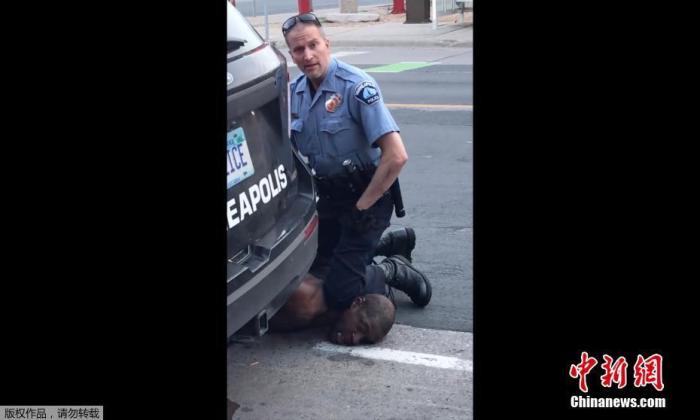China News Agency, Washington, June 16 (Reporter Chen Mengtong) US President Trump signed an executive order at the White House on the 16th to make adjustments to the standards of the US police practice and qualification review. The executive order stipulates that the police prohibit the use of throat-locking actions against law enforcement objects without being threatened by their lives.
Data graph: US President Trump.
The death of African American George Freud due to improper law enforcement by the police has triggered large-scale protests and demonstrations across the United States in the past two weeks. At the same time, the domestic demand for reforming the police law enforcement system and solving the problem of racial discrimination is increasing. Some voices even called for the dissolution of the police station and the establishment of a "community-led" security model.
At the signing ceremony held in the Rose Garden, Trump said that with this executive order, the national police department will use the highest standards to serve the community. He also "strongly opposed" the dissolution of the police department, calling it "a radical and dangerous act."
"We must improve accountability, increase transparency, and invest more resources in police training, recruitment, and community participation. Reducing crime and raising law enforcement standards are not antagonistic, nor mutually exclusive." Trump said.
On May 25 local time, a policeman in Minneapolis, Minnesota, USA, arrested African-American man George Floyd on the ground and put his knee against his neck. (Video screenshot)
This executive order provides for "practice and qualification review" and "policy conduct information sharing" and other aspects: State and local law enforcement agencies must continuously evaluate and improve their practices and policies to ensure that their communities are provided with transparency, safety and accountability. Law enforcement services. Except as permitted by law, law enforcement officers prohibit the use of throat locks when using force.
The executive order also requires the US Department of Justice to create a database of law enforcement personnel to share information among law enforcement agencies at the federal, state, and local levels to track police officers who have committed law enforcement misconduct.
The anti-racial discrimination protest that lasted for more than a week in Washington has calmed down on the 16th. The iron fence outside Lafayette Park on the north side of the White House has been removed and people can enter the park. The wooden boards sealed by shops and office buildings around the White House to prevent smashing of doors and windows have not been removed, and they have been painted or affixed with anti-racism slogans.
Trump said that last year alone, 89 law enforcement officers in the United States were killed on duty. In recent days, two law enforcement officers have died in protest demonstrations and hundreds of policemen have been injured. "What is needed now is not to create more fear and division. We need to bring law enforcement agencies and communities closer together, rather than separating them."
Regarding this executive order, Congressional Democrats and some civil rights organizations believe that they have made too few changes and have come too late. A person in charge of a civil rights organization pointed out that New York and other places have banned law enforcement on locks and throats.
The Senate Minority Leader and Democrat Schumer said in a statement that the president finally recognized the need for police reform, but this "moderate" decree could not bring the comprehensive and demanded by the American people to the US law enforcement agencies. Meaningful change and accountability.
Before the signing ceremony that day, Trump met with several African-American family members who were killed in law enforcement disputes. The meeting list did not include George Freud's family. In subsequent speeches, Trump did not mention George Freud. (Finish)

